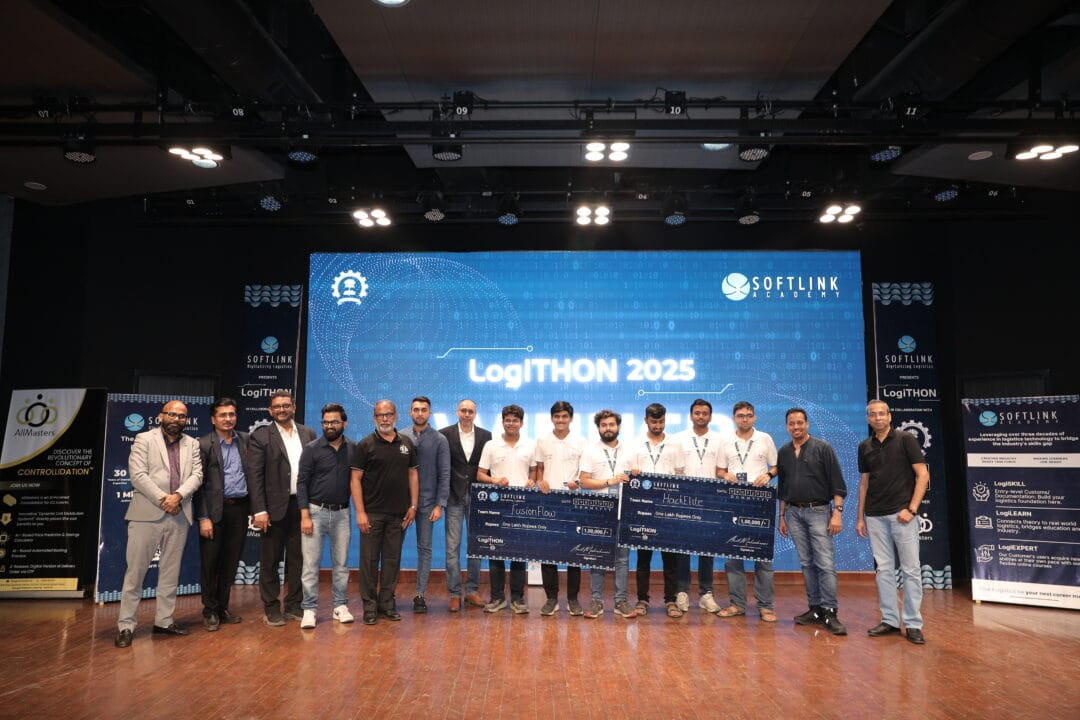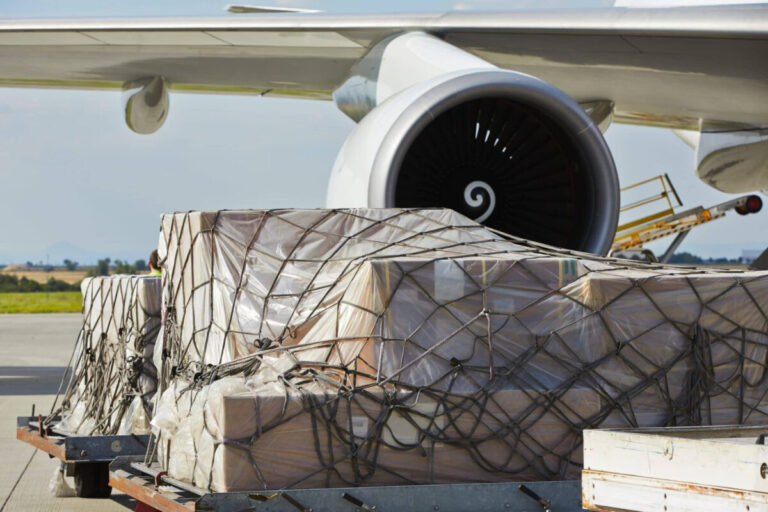
The increasing focus on technological integration within the logistics services sector in Logithon 2025, which was held in IIT Bombay and organized by Softlink Global in cooperation with Softlink Academy, IEOR and IIT Bombay. It attracted more than 1500 students from more than 250 engineering colleges, the event aims to face important logistical challenges through innovative solutions, especially those related to the air freight industry.
Treating the main challenges in the logistics services for air freight
The primary focus of Logithon 2025 was to create solutions to two urgent logistics problems: cross -border compliance and improving the multimedia path in actual time. Each of these two fields remains particularly related to the air freight sector, which frequently faces operational palaces due to fragmented regulatory frameworks and insufficient planning for the road.
As the demand for air cargo continues, driven by high -value sectors such as medicines, electronics and contact materials, stakeholders are increasingly anxious about inefficiency in customs clearance and improving paths. According to estimates, India aims to increase the productivity of air cargo from about 3.5 million metric tons in 2024 to 10 million metric tons by 2030. To achieve this, the industry must address both infrastructure bottlenecks and organizational complications.
Industry leaders and technological integration
The jury at the event included prominent numbers in the industry, including Dushyant Mulani (Chairman of the Board of Directors, FFAI), R. Radhakrishnan (Honorary President, ClearsHip Group), and Mahishwari (CEO, Softlink Global). Their participation confirms the increasing interest of logistics sector in adopting technological solutions to enhance operational efficiency.
Amit Mhaishwari highlighted the increasing role of technology, saying: “Technology is not an option – it is the backbone of modern logistical services. The solutions provided in Logithon 2025 shows the readiness of the next generation of engineers to push the transformative change.” This observation reflects the broader industry towards taking advantage of artificial intelligence (AI), automation, and digital intelligence to improve the flexibility of the supply chain. And its efficiency.
Technological innovations and their impact on air cargo
The technological innovations that are displayed in Logithon 2025 have the ability to transform the air freight industry significantly, especially by enhancing operational efficiency, organizational compliance and digital integration. Since India aims to establish itself as a global logistical center, these technological developments are expected to play a decisive role in simplifying processes and enhancing smooth communication.
The mechanisms of improving effective path appear as important tools to enhance the efficiency of transportation. By reducing transit times and reducing operational costs, these innovations can accelerate the delivery of time -sensitive goods, including high -value commodities such as medicines, electronics and ventilation materials. It is expected to improve the deployment of reliable advanced road planning systems and cost effectiveness through the supply chain.
Organizational compliance also has the benefit of technological integration. Digital tools aimed at simplifying customs processes can enhance border trade efficiency and reduce administrative delay. This improvement is necessary to maintain the competitiveness in the increasingly interconnected global trade environment. By providing stakeholders with simplified procedures, the adoption of innovative compliance mechanisms can lead to more predictable and reliable charging flows.
Moreover, artificial intelligence (AI) and digital technologies have been set to revolutionize shipping management systems. It is expected to improve predictive analyzes, track goods in actual time, and automated decision -making processes in improving transparency and operational reliability. These developments are in line with the wider industry trends towards digitization and smart logistics, which reflects the need for developmental and effective technological solutions.
While the potential benefits of technological integration are clear, stakeholders warn that these developments alone will not be sufficient to push growth in the air freight sector. The parties to coherent policy, the development of strong infrastructure, and strategic investments will be necessary to increase the impact of these innovations. Politics makers are urged to address organizational contradictions and enhance partnerships between the public and private sectors that can facilitate the implementation of these technologies.
With the continued development of the air cargo industry, technological innovation will remain one of the main determinants of its ability to enhance efficiency, flexibility and sustainability. The ideas acquired from Logithon 2025 emphasize the importance of enhancing cooperation between stakeholders in industry, policy makers and academic institutions to develop an environmental system for air -charging ready in the future.
The effects of politics and industry cooperation
The success of Logithon 2025 has broader effects on the cooperation of the Industry Academy, especially with regard to developing policies aimed at improving logistical efficiency. “In the rapidly advanced logistical environment today, cooperation between academic institutions and stakeholders in the industry is necessary to enhance innovation and ensure preparation in the future,” said R. Radhakrishnan, in his speech about the importance of the event,.
In addition, the initiative corresponds to the goals of the Indian government to promote digitization and technological integration across various sectors, including air cargo. Politics makers are encouraged to explore the public and private partnerships to facilitate the implementation of technological solutions that have been developed through such initiatives.
Future prospects and strategic recommendations
As Softlink Global continues to get rid of technological innovation through Logithon, the air cargo industry is expected to benefit from enhancing operational efficiency, compliance and cost -effectiveness mechanisms. However, achieving the ability to expand will require the treatment of deficiencies in infrastructure, coordination of organizational standards, and enhance investment in artificial intelligence and digital tools.
To move forward, stakeholders and policymakers in the industry must cooperate to ensure that technological developments are effectively integrating into the environmental air freight system. Continuous success of initiatives such as Logithon can be a stimulus for broader reforms, which enhances India’s competitiveness in the global air freight market.


